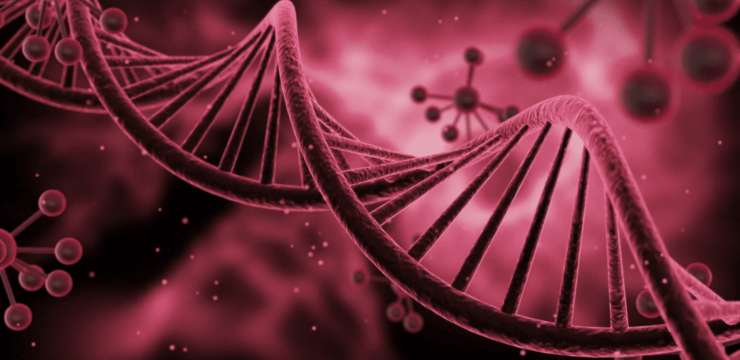Our body’s capacity to endure in a sport and the inflammatory processes that this exercise exerts over it depends on the synthesis and regulation of…


Our body’s capacity to endure in a sport and the inflammatory processes that this exercise exerts over it depends on the synthesis and regulation of…

Physical activity has a heavy impact on our body composition. Body composition and specific methods like bioimpedance analysis and DEXA can describe an individual’s compartments.…

Mercury is a metal that used to be used in common fixes. However, over the years we are seeing that this metal is causing detrimental effects on our bodies. Mercury toxicity mimics many health challenges.Â
Mercury + NervesÂ
Mercury has been know to denervate nerve fibers. This is similar to the pathology of multiple sclerosis. Mercury can cause the nerves to not work properly. Our nerves are essential for proper function. The nervous system is related to every single thing we do. Additionally, mercury is able to leak into the blood-brain barrier and reduce nerve conduction. Mercury has also been shown to create peripheral neuropathy, auto-immunity, and interferes with synapse transmission, decreasing infection control so the unsuspecting victim gets recurrent sinusitis, prostate, or gum infections, as examples. Lastly, mercury toxicity can create any baffling neurologic disease as well as impair cure for any disease of other body systems.
Mercury + HormonesÂ
Hormones are another essential part of our daily life. Our hormones are released not only when we are happy or sad, but when we need to control essential functions in the body. Hormones signal other body systems to release chemicals. Mercury can inhibit the action of happy hormones, such as serotonin. It inhibits the binding at the synapse where the nerve connects to another nerve to pass along signals, ultimately leading to depression. Additionally, mercury can decrease norepinephrine and dopamine activity at synapses, damaging our molecules of emotion. This can make a person lack zip, enthusiasm, joy, and creativity and make him anxious, insomniac, and terribly tense.
Mercury + Other FactorsÂ
When we see someone who is suffering from mercury toxicity, they often complain of terrible body burning and baffling pain that migrates throughout. When our patients come to us saying that they have been resistant to other treatments, we check for mercury because the toxicity could be the underlying root of issues for them.
DNAÂ
Scientists have been researching and discovering the relationship between genes and our environment. More specifically, how our genetic background and susceptibility influence our outcomes. Specifically in the study by Andreoli, the genomic sequence and mercury-related outcomes.Â
“GENETIC VARIANTS, ENVIRONMENTAL RISK FACTORS AND DIFFERENT PERSONAL STRESSORS MAY INTERACT TO SHAPE THE REPERCUSSIONS OF MERCURY ON HUMAN HEALTH.â€- ANDREOLI, VÂ
We know that the human genome is comprised of millions of DNA sequence variants. There are gene-environment links focused on SNPs (single nucleotide polymorphisms) that play a role in mercury actions and outcomes.Â
Lifestyle ChangesÂ
One thing we do at our clinic for all our patients is run an InBody scan. While this scan does not check for mercury toxicity, it does check for visceral fat. Visceral fat is the layer of fat surrounding one’s organs. If the level of this fat is high, the individual is more susceptible to underlying health conditions and inflammation. Underlying health conditions, inflammation, and mercury toxicity is a recipe for disaster. Below is a video demonstrating more in detail what the InBody 770 (the machine we use at our clinic) is capable of.Â
[embedyt] www.youtube.com/watch?v=N3_BEhgJCGc%5B/embedyt%5D
IT IS AMAZING HOW MANY PEOPLE HAVE FILLINGS IN THEIR MOUTH THAT LED TO MERCURY TOXICITY. EVERY TIME SOMEONE EATS, DRINKS COFFEE, OR HAS AN ITEM THAT SCRAPS THESE FILLINGS, SMALL PARTICLES ARE RELEASED INTO THE BODY AND BLOODSTREAM. IF ANY OF THESE SYMPTOMS SEEM FAMILIAR TO YOU, I HIGHLY SUGGEST CONTACTING YOUR DENTIST TO SEE IF THE FILLINGS IN YOUR MOUTH CONTAIN MERCURY. -KENNA VAUGHN, SENIOR HEALTH COACHÂ
References:Â
Andreoli, V., & Sprovieri, F. (2017). Genetic Aspects of Susceptibility to Mercury Toxicity: An Overview. International journal of environmental research and public health, 14(1), 93. doi.org/10.3390/ijerph14010093 www.ncbi.nlm.nih.gov/pmc/articles/PMC5295343/Â
Dooley, Bruce. M.D. “551B: Mercurialism : Finding and Eliminating the Hidden Beast.†FunctionalMedicineUniversity. 12 Feb. 2021.Â
Rogers SA, Detoxify or Die, Prestige Publishing, Syracuse NY, 2002. www.functionalmedicineuniversity.com/public/903.cfm
Additional Online Links & Resources (Available 24/7)


Â
Online Appointments or Consultations:  https://bit.ly/Book-Online-Appointment


Â
Online Physical Injury / Accident Intake Form: bit.ly/Fill-Out-Your-Online-History


Â
Online Functional Medicine Assessment: bit.ly/functionmed
Â
Â
Â
Disclaimer
Â
The information herein is not intended to replace a one-on-one relationship with a qualified health care professional, licensed physician, and is not medical advice. We encourage you to make your own health care decisions based on your research and partnership with a qualified health care professional. Our information scope is limited to chiropractic, musculoskeletal, physical medicines, wellness, sensitive health issues, functional medicine articles, topics, and discussions. We provide and present clinical collaboration with specialists from a wide array of disciplines. Each specialist is governed by their professional scope of practice and their jurisdiction of licensure. We use functional health & wellness protocols to treat and support care for the musculoskeletal system’s injuries or disorders. Our videos, posts, topics, subjects, and insights cover clinical matters, issues, and topics that relate and support, directly or indirectly, our clinical scope of practice.* Our office has made a reasonable attempt to provide supportive citations and has identified the relevant research study or studies supporting our posts. We provide copies of supporting research studies available to regulatory boards and the public upon request. We understand that we cover matters that require an additional explanation of how it may assist in a particular care plan or treatment protocol; therefore, to further discuss the subject matter above, please feel free to ask Dr. Alex Jimenez or contact us at 915-850-0900.  Read More…
Dr. Alex Jimenez DC, MSACP, CCST, IFMCP*, CIFM*, CTG*
email: coach@elpasofunctionalmedicine.com
phone: 915-850-0900
Licensed in Texas & New Mexico

Males and females produce estrogen. However, females tend to have more complications when it comes to estrogen and hormonal issues like endometriosis, PCOS, and hormones that are linked to certain cancers. There are genetic predispositions that make some individuals more susceptible but we have the ability to use the DNA Estrogen test from DNA life to understand individual genetic availability with hormone intervention to help identify women who have a higher exposure to estrogen. Based on these results, we are able to create a truly personalized plan.

As previously discussed, our genes play a significant role in energy expenditure, appetite, and fat metabolism. Our genetics determine our susceptibility to obesity when exposed to an unfavorable environment. Additionally, we are also able to see how individuals will react to specific diets and exercises. We are able to use genetic testing to see a genetic profile and create a cutting-edge, scientifically backed, and effective weight loss plan for each patient. As we know, food consumption impacts our health throughout our entire life. With an unhealthy diet, turning on and off genetic risk factors, it becomes unhealthy and is a major risk factor for chronic health conditions. Nutrition-related conditions are often encountered and identified by chiropractors where musculoskeletal and inflammation is the origin.

Salt is in nearly every food consumed, but some may have a genetic variation causing them to have salt sensitivities. Salt sensitivity is estimated to be present in 51% of the hypertensive (high blood pressure) population. The ACE and AGT genes are both apart of the Renin-Angiotensin System (RAS). The ACE gene codes for the angiotensin-converting enzyme and is part of the RAS. This system controls the blood pressure by regulating the specific volume of fluids in the body.

For those who have lactose intolerance, the LCT gene transcription is reduced, leading to a low level of lactase. To turn off LCT it involves blocking an activator or turning up a repressor. In fact, it is theorized that lactase persistence is a human evolutionary adaptation to drinking milk from domesticated animals. The mutation in the gene started to appear around the same time as the domestication of cattle.